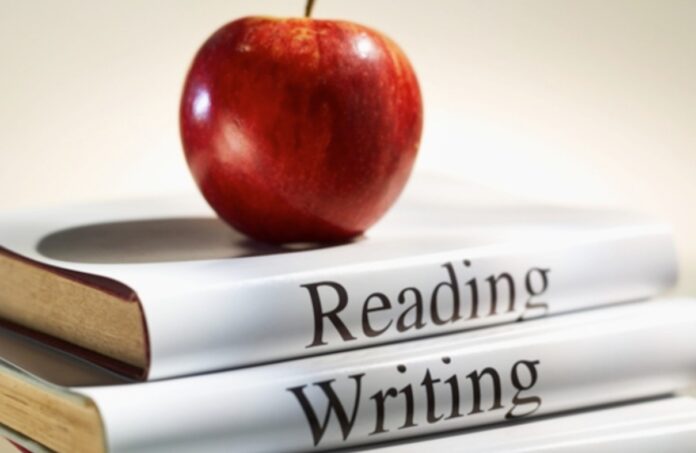While the importance of writing for students’ academic success may look obvious for many people, even educational institutions often forget that writing should be an integral part of the learning process. For instance, in 2003, The National Commission on Writing in America’s Schools and Colleges analyzed data from different schools and called writing the “Neglected “R.” As a result, the Commission initiated a so-called “writing revolution” that resulted in doubling the time students should spend writing. Many researchers have supported this idea and published research materials that illustrated the connection between writing and other important skills, including reading, comprehension, and overall learning ability.
Now, most schools follow the Common Core State Standards so writing is considered one of the main priorities by educators. At the same time, college students avoid writing essays and prefer to outsource their assignments to essay-writing services, risking to get caught plagiarizing. As noted by betterwritingservices.com, not only do students need to write a lot, but they also have to make sure that their writing meets high academic standards. Writing can help students improve comprehension and it can also help students make their reading more efficient.

The Connection Between Writing and Reading
Obviously, reading and writing skills are interconnected in many ways. First of all, both reading and writing are processes that involve the same skills and knowledge. When reading, you should recognize patterns in letter combinations within words, know common spelling patterns, and connect words with meanings, using your vocabulary. Reading also requires you to know grammar because, without it, you won’t be able to comprehend the text. You should also recognize the structure of content to properly connect ideas and link them to the main topic.
When writing, you need the same skill set. You need to match letters with sounds, recognize and construct phonemes, and use spelling patterns. Without these skills, becoming a prolific writer is far from reality or you won’t be able to write at all. This is a reason why learning writing and reading at the same time is an especially effective approach. All the skills and knowledge that serve as the basis for reading are also used in writing. While reading focuses on decoding written words and comprehending the text, writing is based on the opposite process where the writer’s goal is to present their ideas in the written format in a comprehensive way.
Both writing and reading are all about communication. Writers should know their audience to communicate their thoughts effectively. Similarly, it can be easier for readers to understand the writer if they consider the content from the writer’s perspective. Readers should at least understand the general context of the work, and writers should make sure to provide readers with the necessary background information.

Benefits of Writing for Students’ Reading Skills
1. Understanding the purpose of reading
Reading is not only a great exercise that can help students develop other skills but also an extremely valuable tool for obtaining new knowledge. As soon as children learn to read, they already have a general idea of what they would or wouldn’t like to read. With time, students can formulate a clear reading strategy, thinking of what sources can help them get the necessary knowledge, what sources are worth re-reading, and what sources students may use in their own writing.
When writing, students better understand the structure of content, learning how arguments should be structured to support claims with evidence, as well as what evidence is appropriate in each particular situation. As a result, it will be easier for students to search for relevant information and to evaluate how useful different sources are for them.

2. Analytical approach
The early stages of childrens’ educational journey focus on developing fluency in reading and writing. Once children have reached a certain level of fluency, they learn to use writing and reading in their studies. At this point, both reading and writing can become valuable tools for developing reasoning and comprehension skills. Writing requires students to stick with an analytical approach. They need to analyze different materials, considering them from different points of view, and evaluating information in the context of a specific topic.
When students practice writing along with reading, they can learn to generate the right questions and to analyze information to find the most relevant answers. While reading can help students organize their writing, writing can help students use textual materials in research, understanding what information can be used to support a certain opinion and what conclusions can be drawn from a certain source.

3. Confidence
Writing as an exercise enables students to get used to perceiving information in the written format. Younger children can memorize spelling patterns and rules of grammar quicker and better if they also practice writing. As a result, writing can help children improve the efficiency of reading, recognizing words and interpreting them faster. Therefore, writing can make students more confident readers, and such an effect works both ways.
Writing can improve students’ memory, which is great not only for reading but for the learning process, in general. When students prepare for tests, they often re-read their prompts and sources over and over again, trying to better understand the task or to memorize the key concepts. Writing summaries and critiques can be very beneficial for learning because it teaches students to select the key points and helps them quickly get a grasp on the overall meaning.

Final Thoughts
Reading and writing are two activities that are closely interconnected and involve the same skills. Therefore, learning reading and writing as two parallel skills is a great approach. Reading can improve students’ writing by showing examples of a proper structure and expanding students’ vocabulary, while writing can improve reading skills by helping students approach text analytically. Writing can also improve students’ memory, help them consider reading materials in the right context, and become more confident readers, in general.









